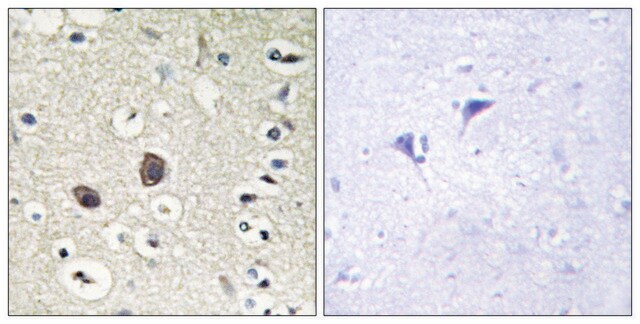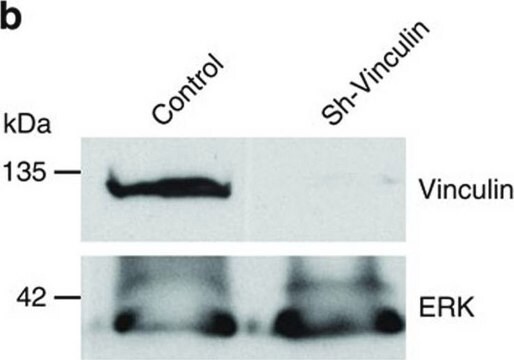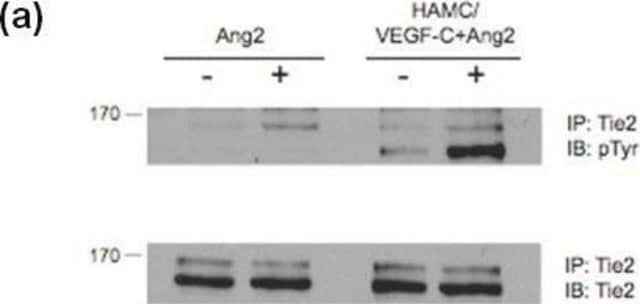05-584
Anti-Tie2/TEK Antibody, clone Ab33
clone Ab33, Upstate®, from mouse
Sinónimos:
CD202b antigen, TEK tyrosine kinase, endothelial, Tunica interna endothelial cell kinase, Tyrosine-protein kinase receptor TEK, Tyrosine-protein kinase receptor TIE-2, p140 TEK, soluble TIE2 variant 1, soluble TIE2 variant 2, venous malformations, multip
About This Item
Productos recomendados
biological source
mouse
Quality Level
antibody form
purified immunoglobulin
antibody product type
primary antibodies
clone
Ab33, monoclonal
species reactivity
human, rat, pig, mouse
manufacturer/tradename
Upstate®
technique(s)
immunohistochemistry: suitable
immunoprecipitation (IP): suitable
western blot: suitable
isotype
IgG1κ
NCBI accession no.
UniProt accession no.
shipped in
wet ice
target post-translational modification
unmodified
Gene Information
human ... TEK(7010)
General description
Specificity
Immunogen
Application
Immunohistochemistry: Reported to detect Tie2/TEK in frozen, Triton-treated sections.
This antibody is not suitable for paraffin-embedded sections.
Quality
Western Blot Analysis: 0.2-1 μg/mL of this antibody detected Tie2/TEK in RIPA lysates from HUVEC cells.
Target description
Physical form
Other Notes
Legal Information
¿No encuentra el producto adecuado?
Pruebe nuestro Herramienta de selección de productos.
Optional
Storage Class
10 - Combustible liquids
wgk_germany
WGK 1
Certificados de análisis (COA)
Busque Certificados de análisis (COA) introduciendo el número de lote del producto. Los números de lote se encuentran en la etiqueta del producto después de las palabras «Lot» o «Batch»
¿Ya tiene este producto?
Encuentre la documentación para los productos que ha comprado recientemente en la Biblioteca de documentos.
Nuestro equipo de científicos tiene experiencia en todas las áreas de investigación: Ciencias de la vida, Ciencia de los materiales, Síntesis química, Cromatografía, Analítica y muchas otras.
Póngase en contacto con el Servicio técnico








